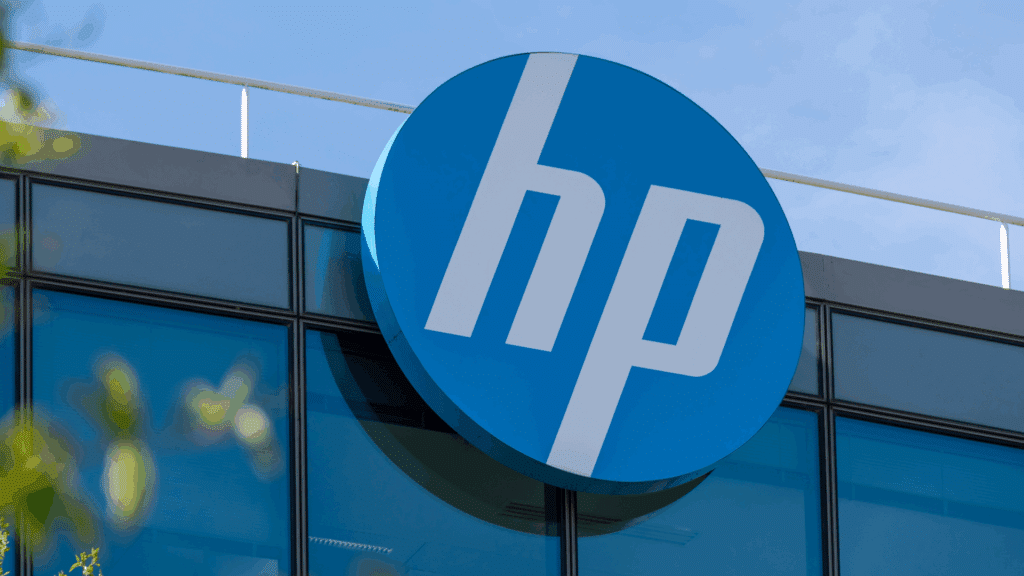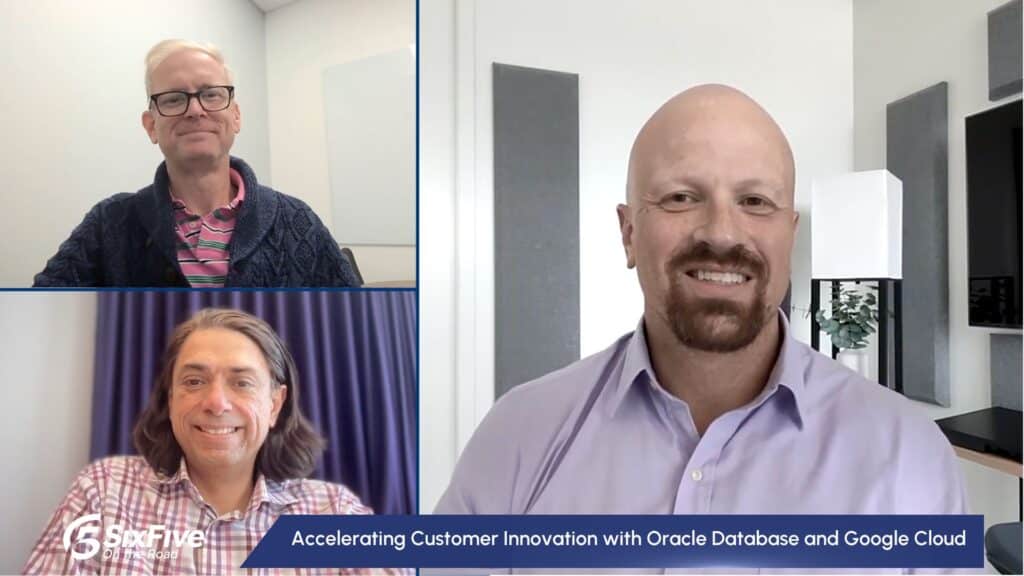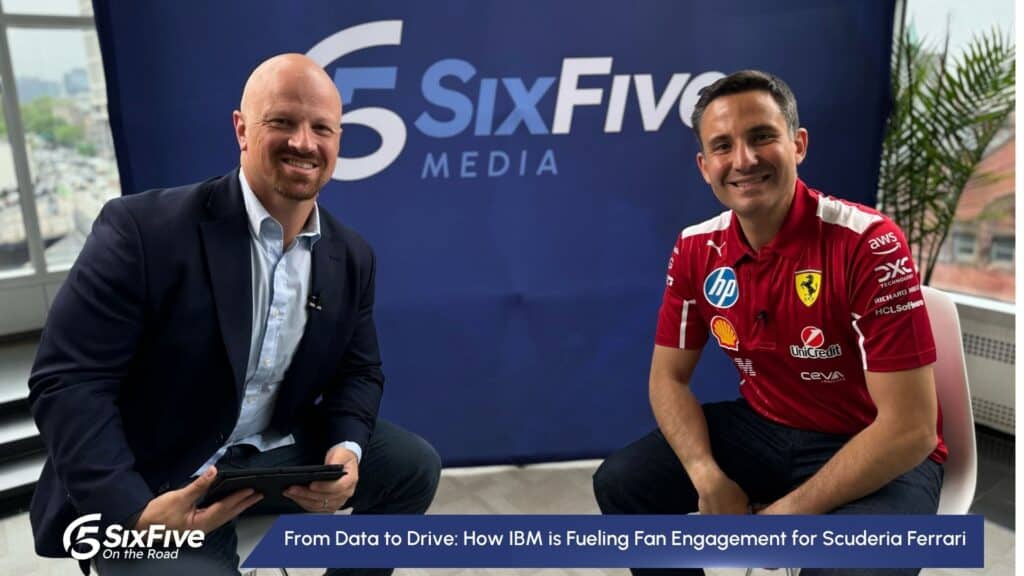The Six Five Team discusses Microsoft Owes $29B to the IRS?
If you are interested in watching the full episode you can check it out here.
Disclaimer: The Six Five Webcast is for information and entertainment purposes only. Over the course of this webcast, we may talk about companies that are publicly traded and we may even reference that fact and their equity share price, but please do not take anything that we say as a recommendation about what you should do with your investment dollars. We are not investment advisors and we ask that you do not treat us as such.
Transcript:
Patrick Moorhead: So, listen, CNBC article came out that said Microsoft owes $29 billion to the IRS for back taxes. Is that the craziest thing you’ve heard of?
Daniel Newman: Well, I mean, it’s not the craziest thing, but I would imagine that, is this a government shakedown or is this something that requires a little bit more attention? Now, before I talk about this, I do want to point out in some good news for Microsoft, the Activision deal closed today. So while we are amidst a, “Hey, you might owe us $28 billion,.” The other massive deal did close. And by the way, what a great deal for Xbox. I mean, that was a big win and another big L for Ms. Lina Khan. Just another deal that she wanted to stop that she couldn’t. Anyway, I know it was the UK, so it wasn’t actually us anymore, but still it was just another one that they put up a fight. Anyways, all right, back to the story at hand. Look, Pat, this stuff’s kind of interesting, because you’re literally talking about the government just went back 10 years, 2004 to 2013, and it basically said that there was taxes that were not paid and now there’s about 10 billion that the company said they did pay that are not being reflected.
But Pat, these are huge numbers. I mean, my take here is that this is probably stuff that forensic accountants and specialized lawyers and financial gurus are going to be spending their time over the next, what do you think, two years, three years? This is going to take a long time. This is not going to go quickly. I know that when the EC finds these companies, a billion here and a billion there, they just write the check and keep making the money. But I don’t think a $28.9 billion tax bill is going to get a quick swipe of the check from Satya and his team.
Patrick Moorhead: Does that go on the platinum card?
Daniel Newman: I think you need the black card to get that one paid.
Patrick Moorhead: That’s right.
Daniel Newman: I don’t even think platinum can handle that. But here’s the thing, Pat, this is a really interesting kind of story that I would put a big bubble wrapper of to be continued around because I just don’t know enough about it yet. What I will tell you is that Microsoft has come out on the record very emphatically saying, “We do not believe we’ve done anything wrong. We do believe we’ve followed the tax code.” And Pat, just to kind of come full circle and ask the question back that I started this with is, what’s going on here? Is this a, oh my gosh, we can’t figure out how to keep the lights on in Washington? Are tax collectors out there basically doing in-depth corporate audits of these big companies now? Are we going to see more of this coming in the next few years where they’re going to look back and look at the tax code?
And by the way, the complexity of the US tax code leaves a lot of opportunity for this kind of situation. But my gosh, Pat, could you imagine if you got a bill today for 10 years ago on taxes you thought you paid and the government was suddenly saying no and it was a big number. I mean, 28.9 billion to them is probably, I don’t know, $28 to you. But to most people, that’s a lot of money. Kidding, everybody. Kidding. Kidding, lawyers. We’re just joking. Pat doesn’t have 28 billion that I’m aware of. But I don’t know, Pat, what do you think?
Patrick Moorhead: Yeah, so this gets down, it’s very clear to me. So the meme is that big companies don’t pay taxes, but-
Daniel Newman: That’s so not true.
Patrick Moorhead: The reality is that companies operate in the tax environment, in the incentives that is set up by Congress and they’re just operating that environment. And there might be energy credits, there might be investment credits, there might be things that they do to take advantage of that. And there’s also international tax law and the way that things are taxed overseas. So, if people have an issue with the way that things are taxed, change the tax code, because these companies are just operating in that. And the other thing we forget is that every wage, everything that’s paid for has a tax on it. Every person at Microsoft that operates in the United States, they pay income taxes, they pay likely city, state, and federal taxes and everything that’s purchased for every one of these sites and for every employee is taxed. So, I think it started with the meme and people have just taken that to the next level. Congratulations Microsoft on getting the Activision deal done. It took a long time, but it happened. And congratulations.
Daniel Newman: Hey, so it is funny, we get taxed on what we earn. If you’re a corporate, you get taxed on what the company earns, then everybody in the company, and then you get taxed on what you buy. So, you take that dollar that’s been taxed and then you buy something with that tax dollar that gets taxed again. And then by the way, when you take it home, you get taxed again on what you own. So you take that tax dollar and you buy something that’s been taxed 30, 40% and then you pay tax when you buy it another 10, seven, 10, 12%, Pat, and then you get a bill at the end of the year with that tax money that got taxed on that thing you buy to pay tax again. I don’t know if this is making it obvious where I stand on this, but I feel like people do pay quite a bit of tax, so it is pretty interesting.
Patrick Moorhead: Yeah, no, I appreciate it. I think I failed to mention those two different levels of taxes.
Daniel Newman: No, I just think it’s great. I think it’s great that you reiterated that.
Author Information
Daniel is the CEO of The Futurum Group. Living his life at the intersection of people and technology, Daniel works with the world’s largest technology brands exploring Digital Transformation and how it is influencing the enterprise.
From the leading edge of AI to global technology policy, Daniel makes the connections between business, people and tech that are required for companies to benefit most from their technology investments. Daniel is a top 5 globally ranked industry analyst and his ideas are regularly cited or shared in television appearances by CNBC, Bloomberg, Wall Street Journal and hundreds of other sites around the world.
A 7x Best-Selling Author including his most recent book “Human/Machine.” Daniel is also a Forbes and MarketWatch (Dow Jones) contributor.
An MBA and Former Graduate Adjunct Faculty, Daniel is an Austin Texas transplant after 40 years in Chicago. His speaking takes him around the world each year as he shares his vision of the role technology will play in our future.







